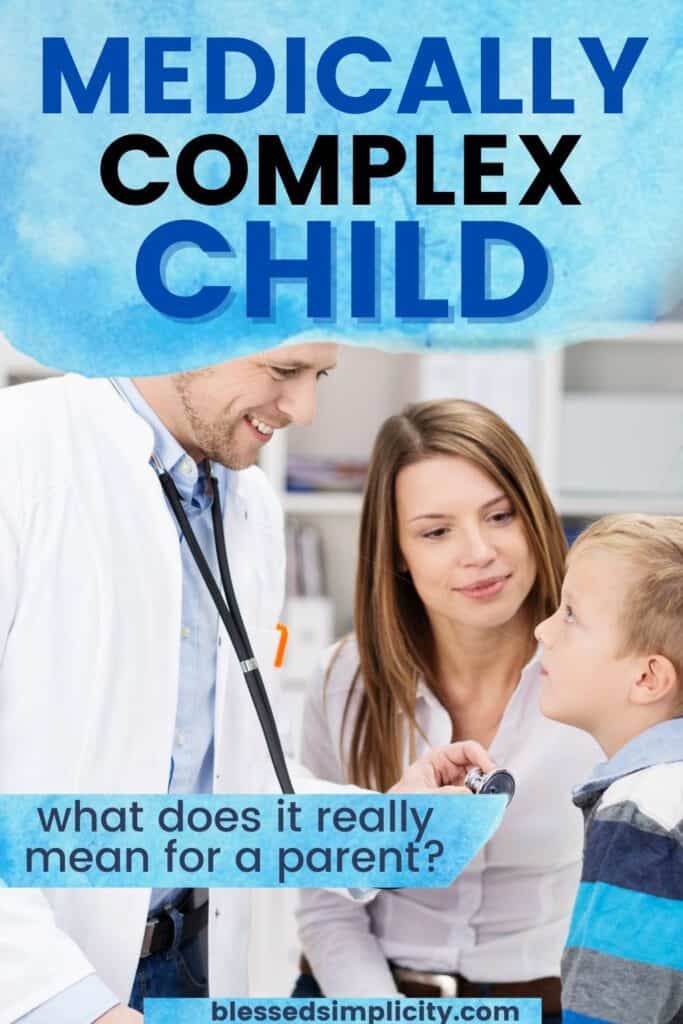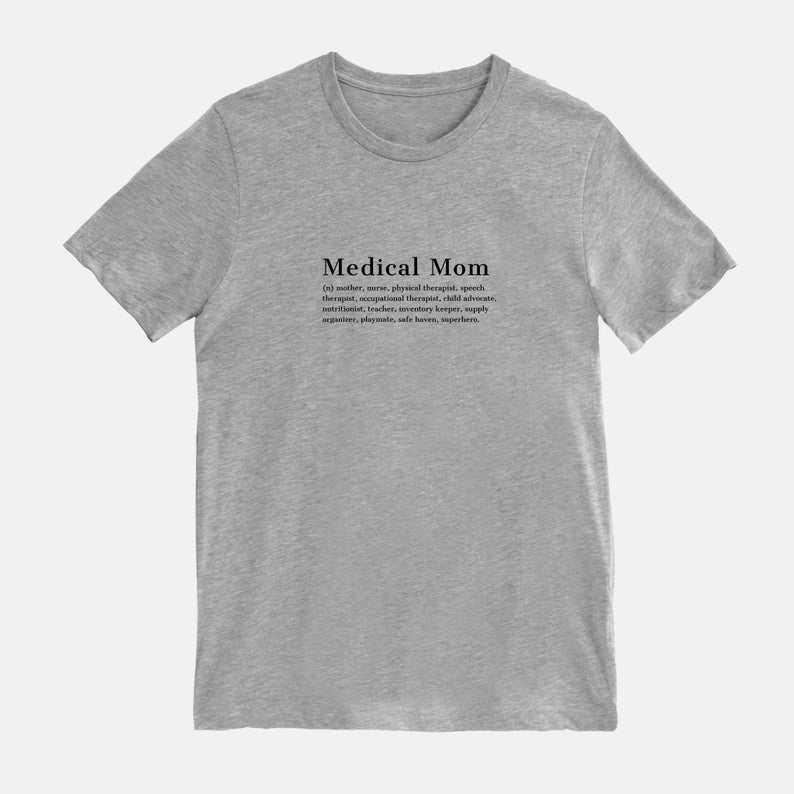What does medically complex mean?
You may have heard the term medically complex used to describe certain children, but what does medically complex mean? Find the definition and other tips for medical moms here.

*This post contains affiliate links. See full disclosure policy below.
Medical complexities can be daunting for any parent, but when it comes to your child’s health, you want to make sure you have all the information you need. Sometimes, medical complexities are difficult to define. So, what does medically complex mean?
What does medically complex mean?
Generally speaking, medically complex refers to a child who has multiple health conditions that require intensive and ongoing medical care. These conditions can be physical, developmental, or both.
Extended Medical Team
Medically complex children have many more doctor visits that the average child. In addition to their regular pediatrician check-ups, they will likely see several specialists.
A specialist is a doctor who has completed additional training in a specific area of medicine. For example, a cardiologist is a doctor who specializes in the heart, while a pulmonologist specializes in the lungs. Medically complex children often need to see several specialists because they have multiple health conditions that require specialized care.
Depending on the child’s individual needs, this could include a cardiologist, pulmonologist, gastroenterologist, nephrologist, neurologist, endocrinologist, and more.
Medically Complex Daily Interventions
In addition to the extended medical team, a medically complex child will need daily interventions such as administering feedings through a feeding tube, suction of a trach, oxygen, and multiple medications administered. They usually also need physical, speech and occupational therapy. These interventions help the child to develop skills and reach their full potential.
Additional therapies may be needed for children who are legally blind such as Orientation and Mobility training.
Help with Activities of Daily Living (ADLs)
Medically complex children will also need help with normal activities of daily living that other children perform on their own. These ADLs may include:
- Grooming—bathing/showering, hand washing, brushing teeth, combing hair,
- Toileting/Continence—managing bowel and bladder
- Dressing—dressing (and undressing) in clothing appropriate for the weather, managing zippers, buttons, and laces
- Eating—feeding yourself an appropriate bite size, chewing, and safely swallowing
- Functional Mobility—moving safely about your environment (walking, rolling in bed, wheelchair use and transfers)

Extensive Family and Community Support
Families of medically complex children will need to find a doctor who can provide comprehensive care and manage all of the above listed services. They also need to develop a strong support system of family and friends who can help with childcare, transportation, and other needs.
What is the financial impact of a medically complex child?
Medically complex children and adults often incur high health care cost. Additionally the rates of hospitalizations, emergency department use, and home health services are significantly higher for these individuals.
Many health plans do not cover pre-existing conditions so a new insurance company may not cover care and related expenses at all.
Parents of medically complex children often cannot work due the their child’s need for twenty-four hour supervision. Many medical moms become stay-at-home moms out of necessity in order to provide the care their child needs.






2 Comments
Comments are closed.